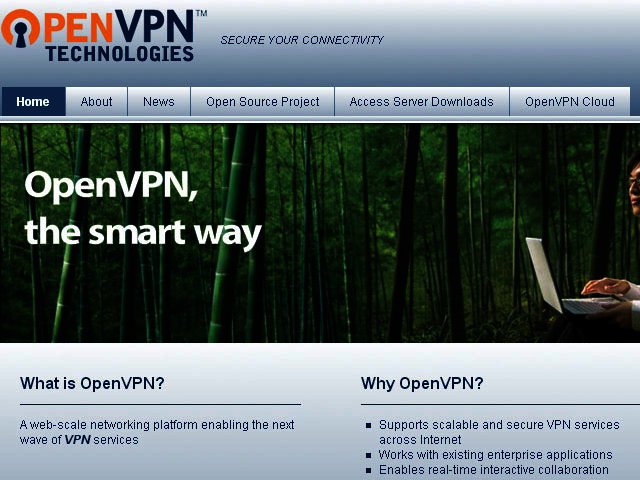DIY VPN
By Lance Terner 7 September 2009 | Categories: netsmart
Since writing NetSmart I've been asked variations of the following question many times: "Is there a way to set up a private connection to access my main PC at home (or work) if I am on the road with my laptop, since I don't always have the files I need?"
The answer to this is a definite yes, and the way to do this is to make use of a Virtual Private Network, or VPN. A VPN is a secure, private network connection or "tunnel" that runs between two or more PC, across the Internet. In my opinion the home or SME VPN is one of the greatest enabling tools made possible by the growth of consumer broadband. Even though a VPN's data travels across a public network like the Internet, it is secure because generally VPN products will make use of very strong encryption.
There are several ways of setting up such a VPN. You can either make use of a specialised consumer VPN router, or install VPN software, which is the more widely used method. There have been some outstanding advances in DIY VPN software over the years, with the entire process being greatly simplified. Here are some examples for you to try.
. Hamachi:
LogMeIn Hamachi is one of the better VPN clients I've seen. You can get up and running very quickly with almost no configuration needed. This product will let you connect to an entire network and share network drives. Free for non-commercial use.
. Leaf Networks:
This product is excellent for home users or friends who want to connect. It is a lightweight, simple to use product and will let you share all of your network devices including gaming consoles (Xbox, PlayStation) and media servers with their playlists.
. Trispen @TheOffice
Trispen are a South African company with a great product. The @TheOffice product set is focused more on the SME market than on home users. Not only are these excellent products, but you also have the advantage of getting local support if needed.
. OpenVPN
OpenVPN is an open source product, and as such is free. This product is very powerful and you can do quite a lot with it, but it can be a little intimidating to set-up. This is definitely better suited to the more technically knowledgeable.
. WallCooler VPN
The Personal Edition of WallCooler is great for home users. While you can't use it to connect to an entire network, and only to a single PC, it also has a remote desktop facility. In this way you can choose to access your files remotely, or actually work on your home computer remotely as if you were sitting in front of it.
Most Read Articles

Have Your Say
What new tech or developments are you most anticipating this year?



